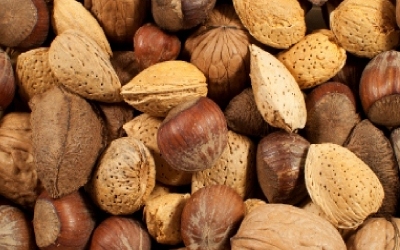Can Selenium Defend You Against Prostate Cancer or Not?
If you’re a man with higher levels of selenium, your wellbeing may be less at risk of developing advanced prostate cancer. This is according to a new study, presented this month at the annual meeting of the American Association of Cancer Research, in Washington, D.C., which found that the mineral selenium, as found in foods such as Brazil nuts, in supplements and in foods grown in selenium-rich soil, could one day offer a way to reduce prostate cancer risk in men.
According to study author Milan Geybels, who is a doctoral candidate in cancer epidemiology at Maastricht University in Maastricht, the Netherlands, ‘There is very little evidence on modifiable prostate cancer risk factors. Any compound that would prevent the incidence of advanced prostate cancer would have a substantial impact on public health.’ However, as these results are yet to be published in a peer-reviewed journal, you should consider the findings preliminary.
Wellness experts have also warned that the results of the study should not be construed as an endorsement of selenium supplements. Elise Cook, MD, an associate professor of clinical cancer prevention at the MD Anderson Cancer Centre in Houston, said, ‘At this point, I wouldn’t recommend that all men run out and buy a bottle of selenium to take.’ She explained that taking too much selenium can be toxic, and you can develop skin problems, and possibly even diabetes. However, if you get your selenium from dietary sources, it shouldn’t be a problem.
For years, cancer researchers have been interested in the supposed benefits of selenium on prostate cancer, until a large trial several years ago revealed that selenium, taken either alone or with vitamin E, did not prevent prostate cancer. Alexander Kutikov, MD, an associate professor of urologic oncology at Fox Chase Cancer Centre in Philadelphia, noted, ‘Before that, selenium supplements had been flying off the shelves. Enthusiasm was really dampened by that trial.’
However, this new study only looked at men who were deficient in selenium and tracked only cases of advanced prostate cancer, which is linked with a poor prognosis. The selenium-dampening trial, on the other hand, evaluated men with normal selenium levels when they entered the trial. Dr Geybels study involved a group of almost 60,000 men aged 55 to 69 at the beginning of the study, and revealed that men with the highest selenium levels, as measured in toenail clippings, were more than 60% less likely to develop advanced prostate cancer.


Comments are closed.